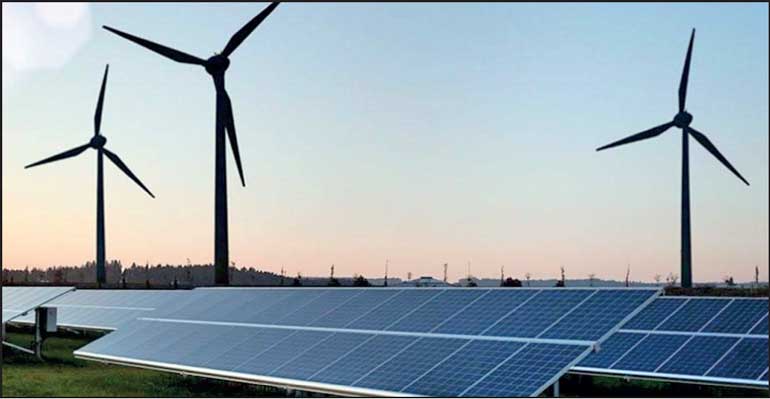Monday Feb 23, 2026
Monday Feb 23, 2026
Friday, 21 October 2022 00:00 - - {{hitsCtrl.values.hits}}

The Federation of Renewable Energy Developers (FRED) yesterday warned of serious setbacks if the corporate tax is increased to 30% from 14% since the industry works on long-term fixed tariffs.
FRED said that the Income Tax Amendment Bill 2022 issued on 11 October 2022 withdraws the current Concessionary Rate of 14% to the Renewable Energy (RE) Sector. The rate is to be increased from 14% to 30% with effect from 1 October 2022.
“Unlike the other industries, the renewable energy sector’s sole buyer is the Government and the Tariffs charged by the RE developers are fixed for a period of 15 to 20 years. The Renewable Energy Sector should be considered as an infrastructure development sector and not as a normal trading sector,” FRED said.
“The increase in the Corporate Tax Rate has taken the Renewable Energy Sector by surprise, especially when the interim-Budget 2022 proposal announced in August 2022 increased the rate from 14% to 15%,” it added.
It was pointed out that the renewable energy sector tariffs are fixed for the period of the Power Purchase Agreement (PPA) which is for a 15-20-year period. The Feed-in-Tariffs (FIT) is determined by a Tariff Committee consisting of several Government representatives. The FIT does not consider Corporate Taxation. The RE Developers are not able to pass on the increase in the Corporate Tax rates to CEB due to its long-term agreements.
The developers when evaluating the investment in Renewable Energy Projects based their evaluation on the Taxation Policy prevailing at the time of the investment and signed long-term PPA on that basis. Hence, it is imperative to maintain the concessionary rate of taxation for infrastructure projects like renewable energy projects.
FRED said the renewable energy sector is currently encountering numerous issues due to the increase in cost because of the depreciation of the rupee, increasing in interest cost and the increase in supplies cost because of the increase in VAT and Social Service Levy. This is in addition to the inability/delay of importing the required spares due to the shortage of foreign exchange.
It alleged that the CEB has delayed payments to the Renewable Energy Sector and currently CEB is paying the October 2021 invoices when they are bound to settle the invoices within 30 days. The RE Sector is owed about Rs. 40 billion as of date.
The policy of the Government is to encourage the development of the Renewable Energy Sector and the target is to achieve 70% electricity from the Renewable Energy Sector by 2030. The removal of the Concessionary Rate puts the final nail in the coffin for the Renewable Energy industry and defeats the very objective of the Government. This would mean additional requirements for the import of oil and/or longer power cuts which would aggravate the foreign exchange issue.
Further, the FRED strongly opposes this draconian provision which is against our country’s future national security (energy security) and requests to at least retain the concessionary tax rate or enact the provisions to adjust the tariffs at which electricity is sold under the power purchase agreements to the CEB for renewable energy projects.